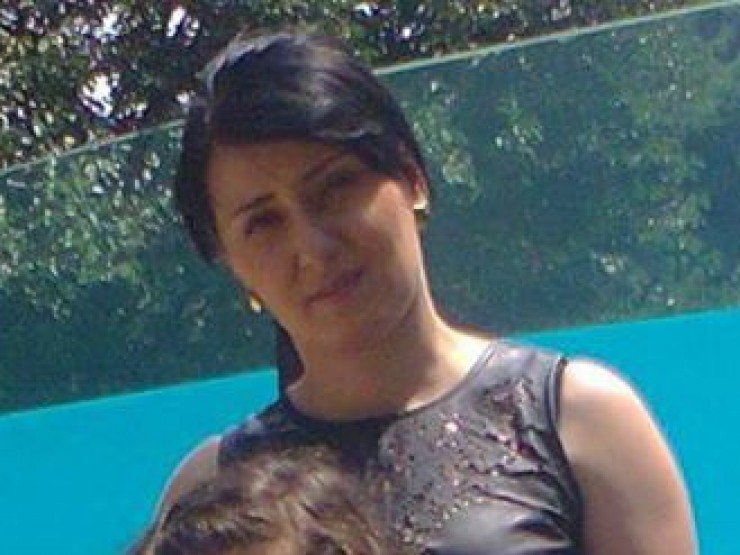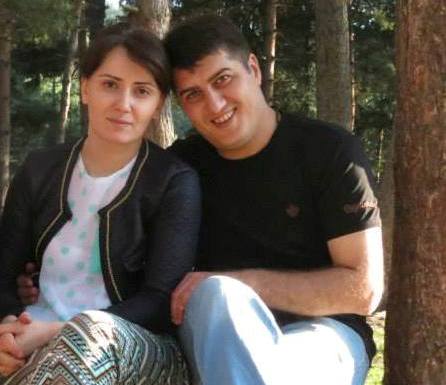by Nino Devidze
 On October 17, 2014, at Ilia State University three gunshots stopped the learning process. An ex-husband shot twice a 33-year-old lecturer and then the murderer committed suicide on the spot in front of professors and students.
On October 17, 2014, at Ilia State University three gunshots stopped the learning process. An ex-husband shot twice a 33-year-old lecturer and then the murderer committed suicide on the spot in front of professors and students.
An emergency brigade took Maka Tsivtsivadze to Republican hospital, but her condition was poor and doctors could not manage to save her life. According to the Republican Hospital resuscitation department head Nicholas Kvachadze, death was caused by brain injuries incompatible with life. “There were multiple gunshot wounds. Based on the test results, there were life-threatening wounds. The patient was taken to the operating area, but because of the difficult situation the operation couldn’t be held,” said Kvachadze.
One of the eyewitness students remembered that the man was looking for his former wife for about half an hour. “He entered the auditorium very violently, almost broke the door, but turned back when he saw a man lecturer," Kate Pkhaladze said. "As I know he also checked out the other rooms. Who he was and what he wanted, I only realized after the accident.”
 The ex-husband, Lasha Makradze, finally found Tsivtsivadze and they left her classroom. According to eyewitnesses, after a noisy dispute, he shot her in the head and then he killed himself. “I had a lecture. Suddenly I heard a shot and a shouting sound," said student eyewitness Eka Rogava. "We went out and saw two dead bodies. It was terrible. Unfortunately, as you know, doctors failed to save her life.”
The ex-husband, Lasha Makradze, finally found Tsivtsivadze and they left her classroom. According to eyewitnesses, after a noisy dispute, he shot her in the head and then he killed himself. “I had a lecture. Suddenly I heard a shot and a shouting sound," said student eyewitness Eka Rogava. "We went out and saw two dead bodies. It was terrible. Unfortunately, as you know, doctors failed to save her life.”
According to Tsivtsivadze’s close friend Khatuna Gamisonia, Magradze, who had two drug-related convictions, and was released in a mass amnesty which took effect in early 2013, had sent Tsivtsivadze threatening messages and also threatened her in a personal conversation.
“It happened a month after the divorce," Gamisonia said. "She hid his situation and always acted like she was happy. But finally, when he beat her every morning, became senselessly jealous and fighting her when she was going somewhere, everything became clear. Very often she was calling police and asking for help. As I know, police were also called to the university. On that day, where was the security when he looked around all the classrooms, before found he Maka?”
University security would not comment on whether it knew about the violent behavior between Tsivtsivadze and her ex-husband. The family also accuses police of inaction, but Interior Ministry spokesperson Nino Giorgobiani said that Tsivtsivadze twice called the police, and that police responded on both occasions.
“Tsivtsivadze went to the police twice, on September 22 and 26." Giorgobiani said. "The first time she went to the police station in Rustavi and reported that her husband was using physical violence against her. She asked police to either make him stop or arrest him. The husband then apologized and promised to stop.
"But four days later, Tsivtsivadze went to the police again, this time at the Didube police station, because the killer started sending her threatening text messages. On September 29, he was called to the police station and warned to stop the harassment or face legal consequences,”
Most of the women murders in 2014 in Georgia were commited by intimate partners.
Psychologist Jana Javakhishivili said that one of the key reasons for the increasing number of violence attacks on women is that women represent a minority in our society today: “Women's killings, which were committed by men, is the last link in the chain of discrimination. Gender roles change into non-recognition or non-seeing. In order to eliminate such domestic violence, there should be activated some stronger legal restrictions.”
The investigation was terminated, as the Georgian Criminal Procedure Code (article 105, 2(g)) states: “the prosecution is not started, when the accused is dead.”